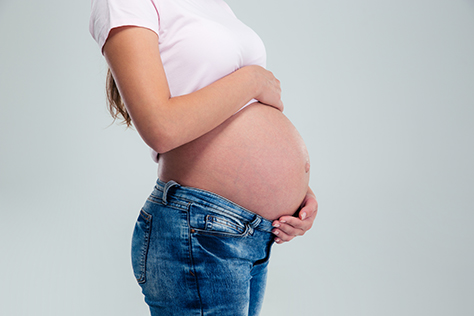Pregnant women and the COVID-19 vaccine: The latest
The Royal College of Obstetricians (RCOG) offer this up-to-date advice for pregnant women

With restrictions relaxed now and COVID-19 cases on the rise, there is a concern amongst doctors and midwives for the risk to pregnant women contracting the virus, according to The Royal College of Obstetricians (RCOG).
Although the RCOG state that roughly two-thirds of pregnant women who get COVID-19 have no symptoms at all, and most pregnant women who do have symptoms only have mild cold or flu-like symptoms, there’s a small number of pregnant women who can become unwell.
RCOG have also acknowledged that pregnant women who catch COVID-19 may be at increased risk of becoming severely unwell compared to non-pregnant women, particularly in the third trimester.
Studies have shown that there are higher rates of admission to intensive care units for pregnant women with COVID-19 compared to non-pregnant women with COVID-19. This higher number may well be related to a more cautious approach when deciding whether to admit someone to the intensive care unit when a woman is pregnant.
Current evidence, RCOG states, that if you have the virus it is unlikely to cause problems with your baby’s development, and there have been no reports of this so far.
There is also no evidence to suggest that COVID-19 infection in early pregnancy increases the chance of a miscarriage. In fact, research from the US supports the safety of the vaccine for pregnant women.
More than 90,000 pregnant people in US research found no risk, and experts say there is no reason to think there is any increased risk of miscarriage - as the vaccine does not appear to cross from the mother to child via the placenta.
Other concerns raised by studies conducted by the RCOG include that there is a two to three times increased risk of giving birth prematurely for pregnant women who become very unwell with COVID-19. In most cases this is due to it being recommended the babies were born early for the benefit of the women’s health and to enable them to recover.
Despite early mixed messages regarding the vaccine and pregnancy being safe, the vaccine has been approved for pregnant women since April.
Many pregnant women have concerns about the vaccine and the RCOG has revealed that 58% of pregnant women have refused the vaccine.
The advice from the Joint Committee on Vaccination and Immunisation (JCVI) is clear and it is that the Pfizer-BioNTech or Moderna COVID-19 vaccines should be offered to pregnant women at the same time as the rest of the population, in line with the age group roll out.
The latest advice from the RCOG and the Royal College of Midwives (RCM) is for pregnant women to take up the option to have the vaccine but the choice is down to the individual.
If you do have questions regarding the vaccine and your pregnancy, speak to your healthcare professional or check out the latest advice from the RCOG by clicking the link below.